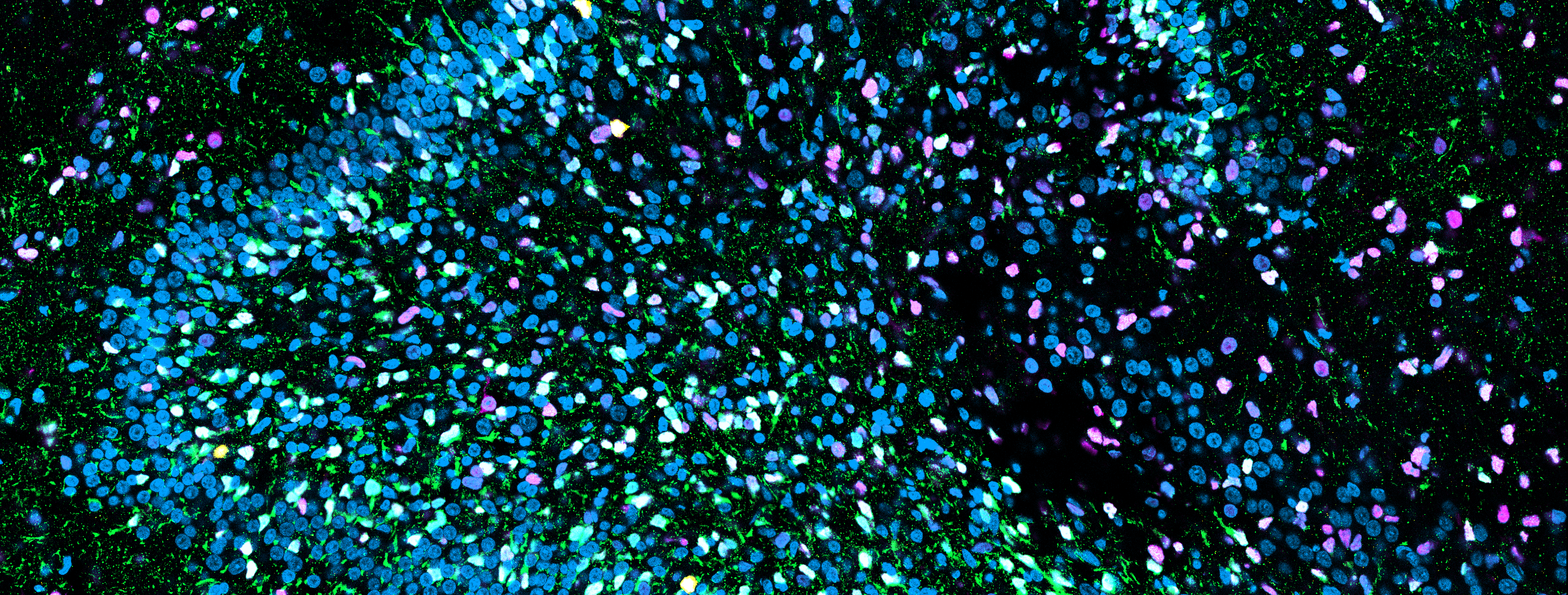Speaker
Description
B7-H3, also known as CD276, is an immune checkpoint molecule and has emerged as a significant player in cancer tumorigenesis across multiple malignancies, including the pediatric brain tumors medulloblastoma, gliomas and ependymoma. Its exact role in tumor formation, however, is unclear. Our investigations demonstrated high expression levels of B7-H3 in brain tumors, irrespective of tumor type or subgroup. To assess its functional relevance, we generated B7-H3 knockout medulloblastoma cells; however, loss of B7-H3 did not impact proliferation in vitro or tumor formation in vivo. This finding suggests that B7-H3 may not be critical for maintaining established tumors in this context, but may play a role in tumor initiation. We observed B7-H3 expression in early developmental stages of the mouse brain and in human neuroepithelial stem cells (NESC), indicating a possible role in normal brain development. In a syngeneic induced mouse model of ependymoma, B7-H3 knockout combined with ZFTA-RELA fusion overexpression failed to generate tumors, suggesting indeed a role for B7-H3 in tumor initiation.
Our findings collectively suggest a nuanced function of B7-H3 in cancer development. While its high expression in established brain tumors across various types implies a common malignancy feature, the lack of effect on tumor growth upon knockout in medulloblastoma indicates that its role may be context-dependent or compensated in established tumors. The inhibition of tumor formation in B7-H3 abscence during oncogene-induced transformation highlights its potential importance in the early stages of tumorigenesis, either by a supportive role of B7-H3 in tumorigenesis or by depleting tumor initiating cells.
In conclusion, our studies reveal a complex picture of B7-H3's role in brain tumor biology, emphasizing its potential involvement in tumor initiation and underscoring the need for further investigation, which we aim to use NESCs to module tumor initiation and progression to discover B7-H3 role in brain tumor initiation.
| Author(s) | Patricia Benites Goncalves da Silva*, Tuyu Zheng, Laura Sieber, Norman Mack, Benjamin Schwalm, Lena M. Kutscher |
|---|---|
| Affiliation(s) | Hopp Children’s Cancer Center (KiTZ) and Developmental Origins of Pediatric Cancer Junior Research Group, German Cancer Research Center (DKFZ), Hopp Children’s Cancer Center (KiTZ) and Division of Pediatric Neurooncology - German Cancer Research Center (DKFZ) Heidelberg/Germany, Hopp Children’s Cancer Center (KiTZ) and Developmental Origins of Pediatric Cancer Junior Research Group, German Cancer Research Center (DKFZ), Hopp Children’s Cancer Center (KiTZ) and Division of Pediatric Neurooncology - German Cancer Research Center (DKFZ) Heidelberg/Germany, Hopp Children’s Cancer Center (KiTZ) and Division of Pediatric Neurooncology - German Cancer Research Center (DKFZ) Heidelberg/Germany, Hopp Children’s Cancer Center (KiTZ) and Developmental Origins of Pediatric Cancer Junior Research Group |

